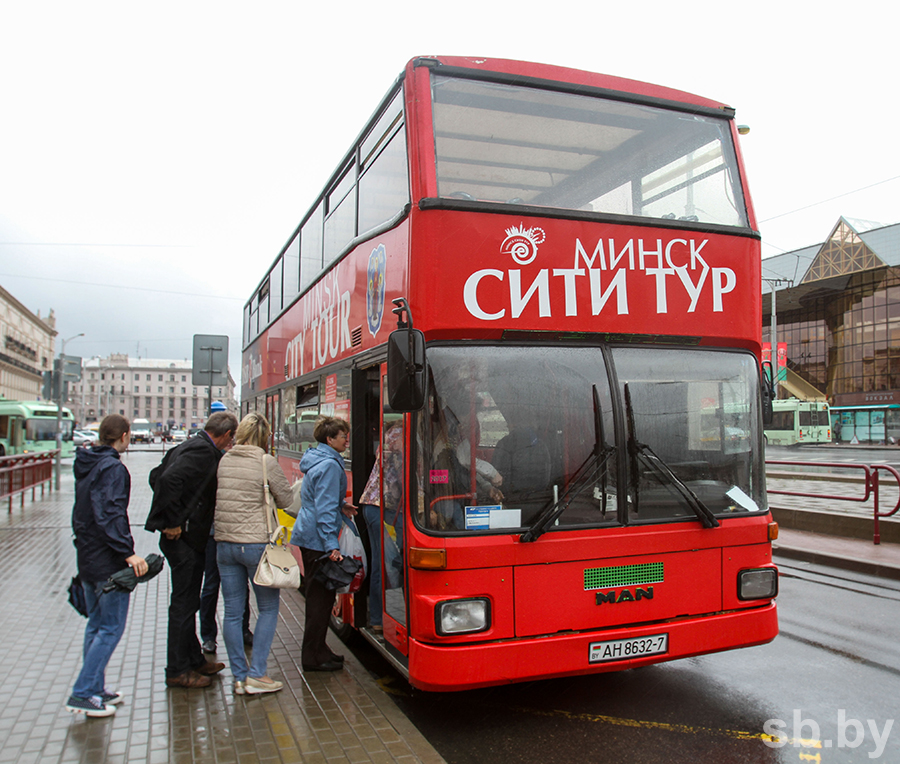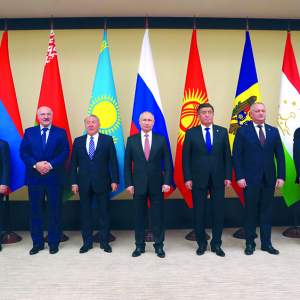The Belarus-Russia border, Asian merchants dumping cheap goods, rising fuel prices, and Chernobyl programme failures – Belarus state press digest

Radiation level in Homiel region. Photo: sb.by
Belarusian President Alexander Lukashenka calls the Belarus-Russia border ‘the strangest border in Europe.’ Belarus’s relations with the USA demonstrate incremental improvement. The Belarusian Central Electoral Commission reports on the candidates for the 2018 local elections.
Central Asian merchants illegally gain a foothold in the Belarusian market by taking advantage of recent trade liberalisations. Belarus has to significantly raise fuel prices, because of Russian oil subsidy policies. Belarusian inhabitants of radiation-contaminated zones ignore security rules.
All of this in the fresh Belarus state press digest.
Foreign and domestic policy
Lukashenka calls the Belarus-Russia border ‘the strangest border in Europe.’ A government meeting headed by President Lukashenka discussed Belarus’s visa policy and its future development. Belarus’s recent measures to ease foreigners’ access to the country is a point of contention with Russia. Since February 2016, the Belarusian-Russian border acquired the unofficial status of being ‘the strangest border in Europe.’ Since that time, Russian has begun to exercise full passport control of all persons coming by road, air, or rail. In fact, it is no longer a possibility for a foreigner to enter Russia via Belarus.

Photo: sb.by
Over the past four years, the Belarusian authorities sent back to Russia about 230 people for readmission. Russians returned only one over the same period. This shows that Belarus pays much attention to security issues. Passport control at the border appeared inconvenient first of all to the Russians themselves. As Lukashenka stated, “Russia claims to take this step due to security reasons. But what kind of security are we talking about, if we have joint lists of foreigners who are prohibited from entering the territory of the Union State of Belarus and Russia? No one on the list can enter Belarus.”
Belarus’s relations with the USA demonstrate incremental improvement. In 2017, Belarus and the USA continued to work jointly in spheres of mutual interest, such as trade and economics, humanitarian affairs, the fight against international organised crime, and exchange programmes for professionals. Interaction between experts has also increased. In April 2017, the USA held the first ever Belarusian-American forum for small and medium-sized private companies, organised jointly with the Republican Confederation of Entrepreneurship.
In June, Belarus’s national exposition opened at the eMerge Americas exhibition of high-tech in Florida, with several Belarusian business delegations visiting the states of Arkansas, New York, Oklahoma and North Dakota throughout the year. Belarus and the USA have successfully advanced cooperation in preventing the illegal transit of nuclear and radioactive materials and in fighting high-tech crime. A joint dialogue on human rights begun in 2015 has continued into 2017, writes The Minsk Times.
Belarus’s Central Electoral Commission reports on the structure of candidates for the 2018 local elections. On average, 1.2 people compete for a local deputy mandate within a district across the country, but Minsk is an exception with an average of 6 local delegates competing per district. However, many regions have constituencies with only one candidate, except for Minsk city and the Mahilioŭ region. Among the candidates, 32 are Russian citizens. 45 per cent are currently serving local deputies. About 30 per cent are representatives of education, science and culture sphere, 11 per cent work in public administration, and about 4 per cent are in trade and services. Approximately 3 per cent of the candidates are military and law enforcement officers, and individual entrepreneurs represent only 2 per cent.
As for party affiliation, the Communist Party of Belarus has nominated 333 candidates, the Liberal Democratic Party has put forward 266, the United Civil Party is fielding 78, and the Belarusian Left Party ‘Fair World’ has a modest 72. The elections seem to have woken many parties that have been dormant for some time, reports newspaper Belarus Segodnia.
Economy
Central Asian merchants illegally gain a foothold in the Belarusian market by taking advantage of recent trade liberalisations. In 2017, clothing stores with surprisingly low prices began to pop-up across the country, reports Belarus Segodnia. There are already almost 80 of these cut-price stores in the regions. The capital, Minsk, has only two. All of the stores belong to merchants from Central Asia. The stores quickly became popular. Meanwhile, Belarusian businessmen started to express concerns. They complained that foreign merchants were stealing their customers and obviously dumping cheap goods to overwhelm the Belarusian clothing market, all the while bypassing the law. They accused them of smuggling their products illegally into Belarus and evading taxes.

Photo: sb.by
Their prices are 2 to 3 times lower than the Belarusian average. Local entrepreneurs complain that these new competitors have taken advantage of loopholes in Belarusian legislation, because according to the recent liberalisation of trade measures, controlling agencies cannot officially check the newly created business entities for two years from the date of registration, and only have the right to monitor and offer recommendations.
Belarus has to significantly raise fuel prices because of Russian oil policies. Belnaftachim, a state petrochemicals firm, spoke to newspaper Respublika about why it has been forced to raise fuel prices. The domestic market has always been unprofitable for oil processors. Indeed, the state fixes prices as a part of its social policy. Previously, Belnaftachim was able to compensate the difference with highly profitable exports. Russian tax manoeuvres in oil industry has brought the cost of the oil it sends to Belarus to world market prices. The price of gasoline and diesel has increased accordingly. Exports, while still profitable, can no longer close the gap in the sales on the domestic market. Therefore, it is necessary to raise fuel prices.
Moreover, the firm needs to invest about $1.3bn into modernisation. Otherwise, by 2020, when Russia plans to equalise oil prices, Belarusian plants will lose their competitiveness. According to Andrej Rybakoŭ, Deputy Chairman of Belnaftachim, in order to compensate for the increase in the cost of oil, fuel prices have to increase by 23 per cent. Belnaftachim considers it necessary to bring Belarusian domestic fuel prices to the level of the Russian market at the very least, which are currently 7–11 per cent higher than Belarus’s. The firm has already undertaken all possible internal measures to reduce costs.
Inhabitants of radiation contaminated zones ignore security rules. Respublica has produced a report on the problems in overcoming the consequences of the Chernobyl catastrophe in Belarus’s Homiel region. The main problem concerns the misuse of funds. Last year, for example, over $133m was allocated towards the state’s elimination of Chernobyl consequences programme. As it turned out, the state organisations and businesses involved with the programme were cutting corners, evading taxes and marking down unjustified expenses. The report put the blame to poor management and negligence. Many of the programmes projects failed to be implemented at all.
The Respublica drew particular attention to six districts in the Homiel region. State farms were growing agricultural products without any control for radiation. In eight farms, inspections revealed cases of excess amounts of the radioactive chemical strontium-90 in grain, which was being supplied for food consumption purposes. The local dwellers often ignore security rules and go mushroom or berry picking in contaminated zones, such as the Paliessie radiation ecological reserve. Few of them care to safety-check their bounties in radiological laboratories.
The state press digest is based on the review of state-controlled publications in Belarus. Freedom of the press in Belarus remains restricted and state media convey primarily the point of view of the Belarusian authorities. This review attempts to give the English-speaking audience a better understanding of how Belarusian state media shape public opinion in the country.





